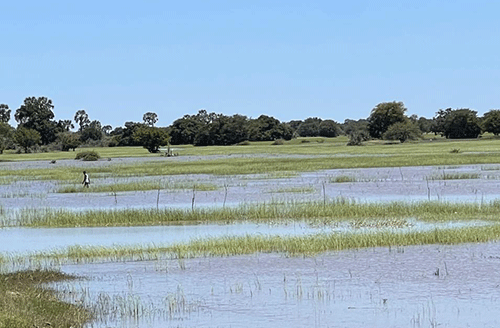ENGELA – Registered nurse at Engela District Hospital Frans Immanuel has cautioned community members against the use of contaminated water, as it has played a role in the increase of diseases like malaria, bilharzia, scabies, diarrhoea and others.
Immanuel added that defecation has been and continues to be a major problem, as residents have been confidently consuming that water.
“Flood, as a disaster, is associated with waterborne diseases – the common one being diarrhoea,” he explained.
He was, however, at ease, as the district has not yet reported any case of cholera.
“Cholera is one of the deadliest diseases associated with the flood. Water gets contaminated with faeces and people consume it and run the risk of getting infected,” he stated.
He said the diseases are dangerous, as they cause dehydration – and when not treated, they may cause death.
“We encounter a vector-borne disease associated with the flood, which is malaria. Mosquitos harbour around standing water,” said Immanuel.
He added other health risks their healthcare facility has been treating, including snake bites.
“People are bitten by snakes and other water insects, which we are treating at our health care facility; additionally, people have also lost their lives through drowning,” detailed Immanuel.
He said they are also treating patients who present injuries sustained from sharp objects under the
water.
Although flood water is subsiding, healthcare workers are vigilant and educating community members.
“the community must ensure personal hygiene. If they are not having access to tap water, they must at least ensure they are advised to boil water before they consume it. We also distribute water purification tablets in the communities,” he said.
The surveillance focal person at Engela, Ester Haimbodi, said since the beginning of the floods in January 2023, they have noted that many malaria cases are imported from Angola.
“The local cases are fewer – but in total, since January, we have about 77 positive cases. We also have 101 diarrhoea cases – and this is diarrhoea [stool] with blood, she detailed.
Haimbodi added that cases of scabies have increased and now stand at 285 patients since the beginning of the year.
She stated that diseases like scabies come with poor hygiene.
– psiririka@nepc.com.na


